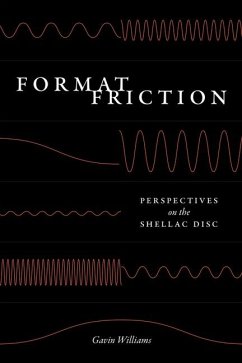"With the rise of the gramophone circa 1900, the shellac disc mushroomed into the dominant sound format of the first half of the twentieth century. Format Friction brings together a set of local encounters with the shellac disc, beginning with its preconditions in South Asian knowledge and labor as well as early colonial expeditions to capture sounds, to offer a global portrait of this format. Spun at 78 revolutions per minute, the shellac disc had become an industrial standard, even while the gramophone itself remained a novelty. The very basis of this early sound reproduction technology was friction, an elemental materiality of sound shaped through cultural practice. Yet the recording of sounds was only one element in the making of this global format. Using friction as a lens, Gavin Williams reveals the environments plundered, the materials seized, the ears entangled. Bringing together material, political, and music history, Format Friction decenters the story of a beloved medium and so too explores new ways of understanding listening in technological culture more broadly"--
Hinweis: Dieser Artikel kann nur an eine deutsche Lieferadresse ausgeliefert werden.
Hinweis: Dieser Artikel kann nur an eine deutsche Lieferadresse ausgeliefert werden.








